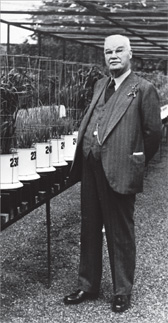Each year the Trust, in partnership with The James Hutton Institute, organise the annual Macaulay lecture.
The aim of the lecture is to stimulate thinking and dialogue about contemporary environmental issues in order to honour the vision of Dr T B Macaulay from whose endowment in 1930 both the Trust and the Hutton trace their origins. Further information about Dr Macaulay can be found here.
The lectures are aimed at an informed, professional audience and each one is given by a world renown academic. The list below shows an archive of recent lectures. The most recent lecture can be found on the following page.


 The annual T.B. Macaulay Lecture is held to honour the vision of
The annual T.B. Macaulay Lecture is held to honour the vision of